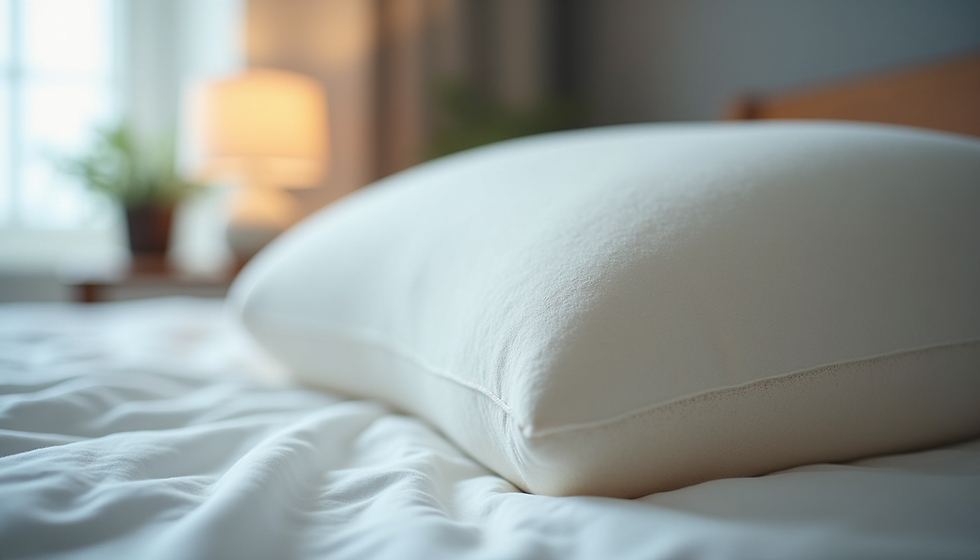The Good News About Coffee
- Patrick Wright
- May 10, 2019
- 4 min read
Updated: May 7, 2021

Drinking coffee is something of a national hobby.
With at least three out of four Australians drinking at least one cup each day, it's a habit that costs us hundreds of millions of dollars per year.
But could it be that we love coffee a little too much? And what are the signs we might be overdoing it?
'Everyone's favourite psychoactive drug'
There are plenty of reasons why we love coffee, it gives us energy, makes us more alert and boosts our mood.
"It's everyone's favourite psychoactive drug. It's the one we take more often than anything else," says Merlin Thomas, professor of medicine at Monash University.
"It improves focus, it improves optimism, it makes some people feel relaxed. It gives a lot of people … the energy to do what needs to be done."
But caffeine, the stimulant drug found in coffee, is known to be addictive.
And at higher doses it can cause unpleasant symptoms, including interrupted sleep, sweating, increased heart rate and even anxiety.
For some of us who are sensitive to caffeine, these side effects can kick in much earlier.
Too much of a good thing
Over time, our body can become accustomed to regular hits of caffeine, whether from coffee or other sources of caffeine, such as tea, chocolate or energy drinks.
Stop a habitual coffee drinker from getting their regular fix and they can experience withdrawal symptoms, which can include headaches, irritability, sweating and muscle pain.
Withdrawal symptoms can occur within a day of your last caffeine hit, and usually disappear after a week.
While it might sound bad, it's not an addiction most of us should be particularly concerned about, says Llewellyn Mills, a drug and alcohol researcher at the University of Sydney.
"With caffeine, there are no real social consequences from using it. It's more or less encouraged. It's very cheap and it's really not that harmful," he says.
The US Food and Drug Administration has cited 400 milligrams of caffeine — equivalent to about four shots of espresso — as an amount "not generally associated with dangerous, negative effects".
Some people may experience the unpleasant side effects we've mentioned at amounts much lower than that, says Clare Collins, professor of nutrition and dietetics at the University of Newcastle.
Professor Collins also recommends pregnant women limit their caffeine intake to less than 200 milligrams per day, as it can affect heart rate and blood pressure.
What problematic caffeine use looks like
The latest edition of the Diagnostic and Statistical Manual of Mental Disorders (DSM-5) included diagnostic criteria for "Caffeine Withdrawal Syndrome", a condition it has listed for further study.
The warning signs in the manual include:
"A persistent desire or unsuccessful efforts to cut down or control caffeine use"
"Continued caffeine use despite knowledge of having a persistent or recurrent physical or psychological problem that is likely to be caused or exacerbated by caffeine"
"Continued caffeine use despite having persistent or recurrent social or interpersonal problems caused or exacerbated by the effects of caffeine".
Many of these symptoms are beyond those experienced by a typical coffee drinker. A good rule of thumb is that if your coffee or caffeine use is causing disruptions in your life, it might be time to cut back or seek some help, Professor Collins says.
"[If] it's really becoming disruptive in your lifestyle, that need for caffeine … [or] you're developing reflux, heart palpitations or you're not sleeping — and you're pretty sure it's because of this increasing dose of coffee or your coffee-seeking behaviour — then it would be very wise to nip that in the bud," she says.
She suggests trying to switch to decaf (which still contains some caffeine). Your local GP is another good resource for getting help.
Why your coffee habit might be good for your health
What you might find interesting is that coffee consumption has been linked to several health benefits, and even longer life.
"There was a systematic review and it reviewed 20 studies, close to 1 million people, and the people who drank the most coffee had a 14 per cent lower risk of dying prematurely," Professor Collins says.
Coffee consumption has also been linked to lower risk of some cancers, type 2 diabetes and liver conditions. There also seems to be beneficial associations between coffee consumption and Parkinson's disease, Alzheimer's disease and depression.
These benefits are probably not coming from the caffeine, but rather other compounds in coffee, Professor Collins adds.
When you weigh up the positives and the negatives, drinking a coffee or two each day is probably good for our health, she says.
"Anyone who has gone on a health kick, the first thing they've done is to give up coffee. Now we are saying, 'Hey, if you're going on a health kick, do not give up coffee'," she says.
"If you think you're addicted, and you're experiencing these withdrawal or tolerance symptoms, then definitely switch to decaffeinated, but don't give it up. All of these bioactive compounds are doing other good things."
The takeaway? As long as your caffeine use isn't interfering with your life, you are probably doing yourself a favour by having your morning cup.
It's music to the ears of coffee drinkers everywhere.
This article contains general information only. It should not be relied on as advice in relation to your particular circumstances and issues, for which you should obtain specific, independent professional advice.
From ABC Life









Comments